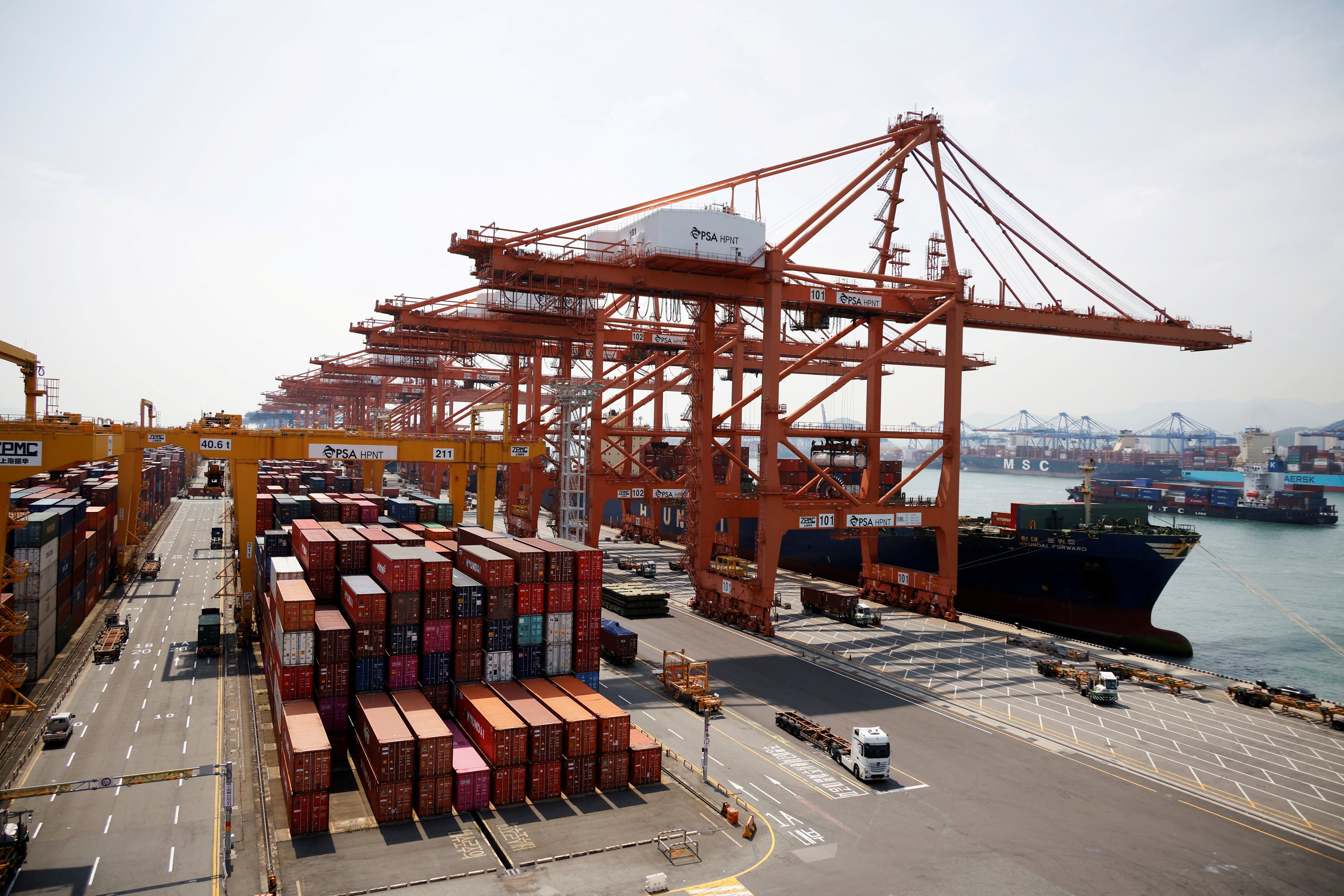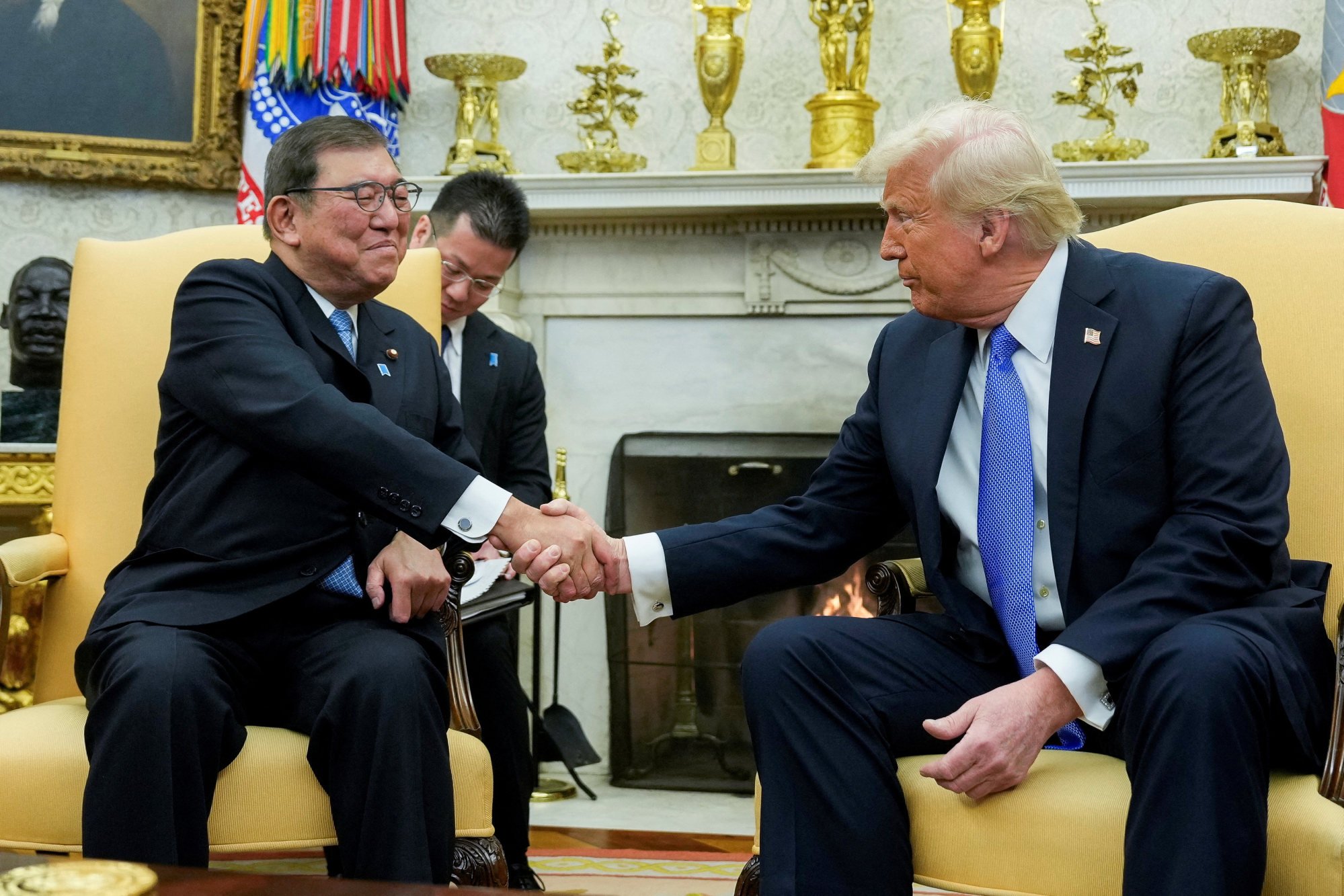‘Truly regrettable’: Trump slaps 25% tariffs on South Korea and Japan. What now?
Because of its open economy and status as Washington’s ally, South Korea has a good chance of reaching a trade deal with Trump, analysts say

US President Donald Trump’s surprise announcement of 25 per cent tariffs on imports from key trade partners including South Korea and Japan has been viewed less as a final blow and more as a high-stakes bargaining tactic.
The move highlights Trump’s preference for brinkmanship-style deal-making and leaves room for diplomacy, as Seoul races to craft its response ahead of the new August 1 deadline, according to analysts.
South Korea’s presidential office convened an emergency meeting of cabinet ministers on Tuesday after Trump’s letter to President Lee Jae-myung formally notified the Lee administration of the planned tariffs.
The new date marks a three-week extension beyond the previously expected implementation of Washington’s tariffs on July 10, originally set after a 90-day pause.
The South Korean industry ministry has vowed to pursue a “mutually beneficial” agreement during the extended window.
Officials signalled plans to revise domestic regulations and enhance cooperation in strategic sectors such as shipbuilding and semiconductors as part of broader efforts to support a “manufacturing renaissance” in both countries.
National Security Adviser Wi Sung-lac spoke with US Secretary of State Marco Rubio on Monday in Washington, conveying Seoul’s hope to hold a summit “to advance a mutually beneficial outcome in all pending issues” – a sentiment the US reportedly shared.
The two sides agreed to deepen cooperation in shipbuilding, an area where Washington is seeking to revive its competitiveness in the face of China’s dominance.
Analysts believe South Korea’s competitiveness in semiconductors, batteries and shipbuilding dovetails with US economic and strategic interests. By positioning itself as an indispensable partner, Seoul may steer negotiations toward a favourable resolution, they suggest.
Wendy Cutler, vice-president of the Washington-based Asia Society Policy Institute and former chief negotiator of the South Korea-US free-trade agreement (FTA), called the tariff announcement “unfortunate” given that South Korea and Japan were “two of our closest allies”.
“While the news is disappointing, it does not mean the game is over,” she said in a statement sent to the Post and other media outlets.
“We cannot rule out a breakthrough in negotiations in the lead-up to August 1, when the additional tariff hikes are to take effect.”
Unhandled type: inline-plus-widget {“type”:”inline-plus-widget”}
Cutler emphasised that South Korea and Japan had contributed significantly to US economic security through investments and market openness, particularly in shipbuilding, semiconductors, critical minerals and energy.
This announcement will send a chilling message to others,Wendy Cutler, Asia Society Policy Institute’s vice-president
She also disputed the narrative that the US trade deficit arose partly because of South Korean tariffs on American goods.
“As a free-trade agreement partner, almost all of Korea’s tariffs are at zero for US imports,” she said.
“This announcement will send a chilling message to others,” she warned, adding that it could dampen hopes for reprieves from sector-specific tariffs, especially on automobiles – a priority issue for Seoul and Tokyo.
South Korea’s car exports to the US totalled US$34.7 billion in 2024, accounting for 49.1 per cent of its total auto shipments.
Hyundai Motor Group and GM Korea shipped around 970,000 and 410,000 vehicles, respectively, to the US last year.
As for Japan, Cutler noted rising tensions with Washington: “Part of this seemed to stem from an unfounded US expectation that Japan would somehow be an easy negotiating partner.”
However, domestic political constraints ahead of Japan’s Upper House election on July 20 have limited Prime Minister Shigeru Ishiba’s options, especially on sensitive sectors like autos and agriculture, she said.

On Tuesday, Ishiba said Trump’s tariff rate was “truly regrettable”, adding that Tokyo and Washington would continue to discuss and work towards a mutually beneficial deal. “We will continue to engage in negotiations with the United States to explore the possibility of reaching a mutually beneficial deal while protecting our national interests,” he said at a tariff task force meeting.
In South Korea, economic forecasters are already crunching the numbers.
Kim Young-geu, a senior researcher at the Korea Institute for International Economic Policy (KIEP), estimated that if the proposed tariffs were to go into effect, South Korea’s real gross domestic product could decline by 0.3 to 0.4 per cent, or 9 trillion won (US$6.6 billion).
KIEP’s scenario assumes a 25 per cent general tariff on Korean imports, separately from 50 per cent sector-specific tariffs on steel and aluminium, and 25 per cent levies on cars, automobile parts, semiconductors, and pharmaceuticals.
Tom Ramage, an economic policy analyst at the Korea Economic Institute of America, said Trump’s letter signalled a deliberate effort to keep the door open for negotiation.

“If anything, the mention of a possible adjustment suggests that the US has an appetite to get a deal done, rather than leaving the tariffs where they are at 25 per cent,” he told Yonhap News Agency.
Ramage pointed to potential areas of compromise including South Korean investment in US LNG infrastructure, resolution of digital trade barriers, and easing restrictions on American beef exports.
“Korea plays an outsize role in strategic industries for the United States, such as semiconductor production, shipbuilding, and battery technology,” he said.
In 2024, South Korea exported US$127.8 billion worth of goods to the US, while importing US$72.1 billion, making the US its second-largest trading partner.
Lee Taek-keun, an economist at the Hyundai Research Institute, urged caution but remained optimistic: “We don’t have to be too pessimistic,” he told This Week in Asia, adding that South Korea remained better positioned than China in securing lower US tariffs thanks to its alliance credentials and economic openness.